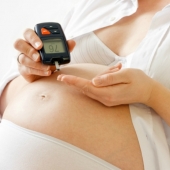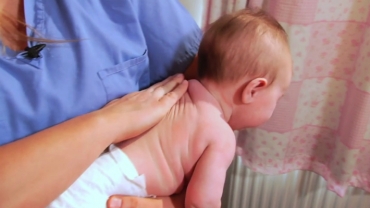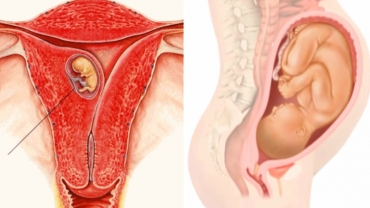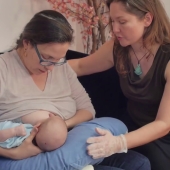As soon as a child is born its natural instinct is to seek its mother's breast and begin breast-feeding. Placing your newborn in skin to skin contact at your breast in the first hour following birth. Offers several benefits for your newborn and for you.
Skin to skin contact helps:
- Stabilize baby's temperature
- Respiratory rate
- Blood sugar
- Stimulates brain development
It also helps build a bond between you and your baby. Your newborn begins to suckle and gets the first milk called colostrum which is rich in antibodies and nutrients. It is sometimes called baby's first immunization.
Colostrum:
- Helps prevent allergies and infection
- Helps clear the first stool
- Helps reduce jaundice
Starting to breastfeed in the first hour after birth. Is important even if the birth was by c-section. If you have a c-section you can start breastfeeding as soon as you feel comfortable enough to hold your baby.
As you wait keep the baby with you preferrably in skin to skin contact. Ask health workers to show you comfortable breastfeeding positions. Breastfeeding can begin right away in the operating room in most cases. If your baby is born with low birth weight but not prematurely you can begin breast-feeding right away.
Your baby may need more frequent feedings and may get sleepier while feeding. If your baby is born prematurely here she may not be able to breastfeed at first but may be able to drink expressed breastmilk.
Every mother can produce enough milk in the first few days after birth. Babies need only a little at a time. On day one the stomach is about the size of a grape and can only hold about five to seven millimetres and each feed. Your body can easily produce that amount. small frequent feeds said a healthy eating pattern.
You will know if your baby is getting enough breast milk if he or she passes light colored urine. One or two times on the first day on the second day when more milk comes in.
A baby will pass here in six to eight times. by the third to fourth day your baby needs about 22 to 27 millimeters have milk each feeding. That's the amount that would fill a stomach the size of a lemon.
By the 10th day your infant needs about 60 to 80 millimetres at milk at each feeding. Your body can easily produce this amount filling a stomach the size of an egg. During these first days your newborn stunning is designed to digest breast milk easily.
Feeding your baby anything before you initiate breastfeeding can pose risks to your baby. Substances such as water sugar water honey and baby formula are called pre left heels.
Prelacteals risky because:
- Baby lacks enzymes to digest them
- Baby more likely to develop intolerance for allergies
- Serious infections may occur
- Less room in baby's stomach for breast milk
- Breast milk takes longer to come in
- Baby less interesed in breastfeeding
For nine months in the lone your baby receives all the nutrition needed from your body. After birth your body continues to produce the best no rush meant for the baby and in the right amount.
- 25530 views













